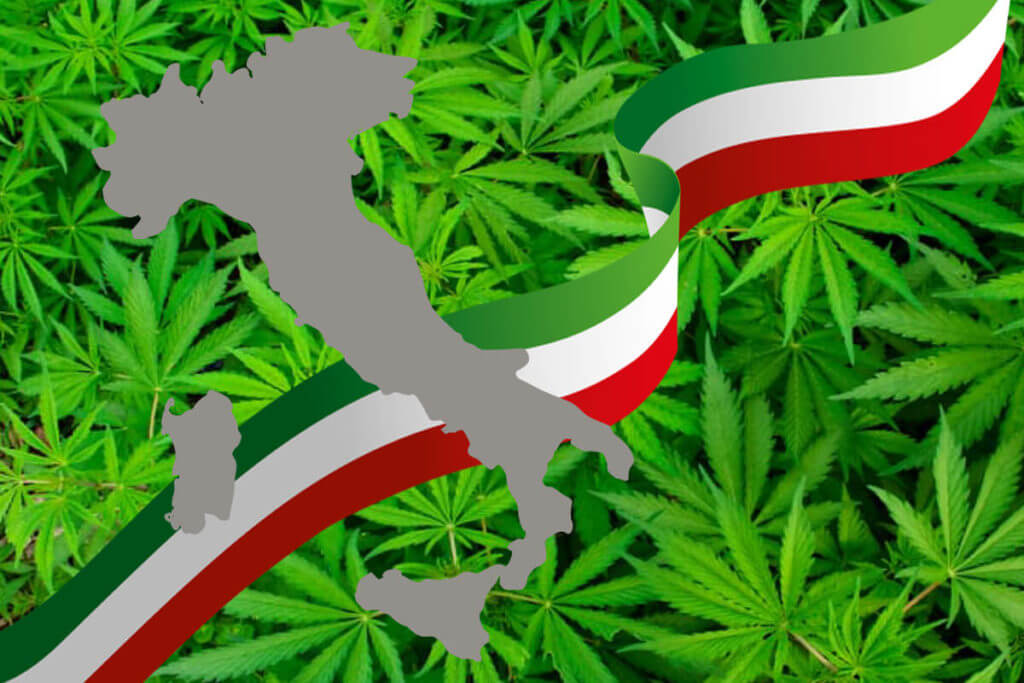Image via
After years of incremental steps towards widening cannabis access, Italian voters may soon vote on the decriminalization of cannabis in the spring elections of 2022. A group known as Referendum Cannabis collected half-million signatures to put the referendum on the ballot — over the course of just one week.
“This is an extraordinary result but it’s not surprising,” said the group’s organizing committee, as reported by Reuters.
If successful, the proposal would eliminate prison sentences for most cannabis activities, including possession and cultivation. The ballot referendum would also remove Italy’s prohibition on cultivating psychoactive substances. Production and manufacture will remain illegal, however. The campaign’s website says the change is not designed to legalize all drugs, as most require further processing after cultivation.
Though Referendum Cannabis has gathered the 500,000 digital signatures required before the September 30th deadline, they’ve announced that they will continue to collect signatures in case some are found to be invalid by election officials.
The digital signature-gathering effort was facilitated by recent changes to Italian voting laws that allow signatures to be collected and counted electronically in such referendum campaigns.
One of the arguments for decriminalizing cannabis in Italy is to diminish the power and profits of organized crime. A 2021 report from the European Monitoring Centre for Drugs and Drug Addiction stated that cannabis made up 74 percent of all illegal drugs seized by law enforcement.
Decriminalizing cannabis (with the potential for evolving into a fully legal market) makes perfect sense, especially when considering the history of the country, which was once renowned as a center of hemp production. At one point in the 1940s, Italy produced the second-largest amount of hemp by any country in the Western Hemisphere. Though the global War on Drugs resulted in the prohibition of cannabis in the 1990s, Italian farmers have returned to hemp production, spurred by a 2016 legalization of the industry.
News of the referendum’s success came weeks after a committee in the country’s lower legislative house moved a bill forward that would fully decriminalize at-home cultivation of up to four cannabis plants. But, the penalty for sales also increased from six to 10 years, Ansa reports. Italy initially decriminalized cannabis possession in 1993, but a 2006 law tripled prison sentences for cultivation, sales, and possession until that law was reformed in 2014.
As far back as 2019, Italy’s Supreme Court found that private, personal cultivation of cannabis was permitted. But as anyone familiar with Mexico’s interminable march towards cannabis legalization knows, high court rulings must be enforced by a country’s lawmakers — who are the ones who actually make laws. In other words, Italians have been through the wringer — and likely confused as hell with what they are and are not allowed to do — regarding the loosening of cannabis laws.
Medical cannabis has long been legal in the country with a doctor’s prescription, and when the patient’s health condition has proven resistant to other forms of treatment. Italy’s ministry of health, which oversees its medicinal program, has released figures stating that consumption of legal medical weed grew by a factor of 10 in its first decade.
Because the current laws ultimately limit access to cannabis, Italy faces flower and product shortages regularly. To address the issue, army facilities have stepped in to augment the cannabis that arrives to the country via imports.
In short, the country’s patchwork of legislative advances has left cannabis users in a legal grey area — one that organizers of the Referendum Cannabis initiative hope to clarify by decriminalizing a cannabis industry.











